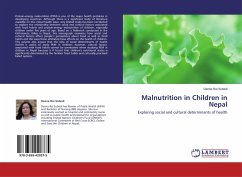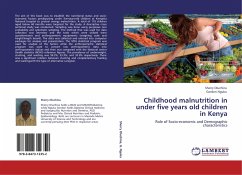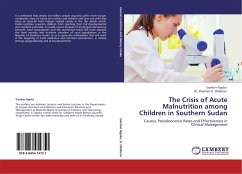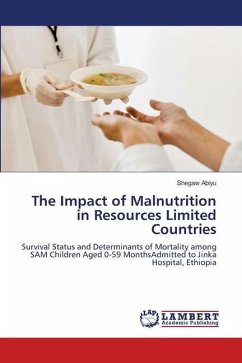Protein-energy malnutrition (PEM) is one of the major health problems in developing countries. Although there is a significant body of literature available on this critical health issue, very limited study has been conducted to explore the relationship between social and cultural factors associated with food habits and protein-energy malnutrition of children, especially children under five years of age. Based on a fieldwork conducted in the Kathmandu Valley in Nepal, this monograph examines how social and cultural factors affect people's perceptions about food as well as food habits and the ways these ultimately have effects on the health of children. This volume also argues that the idea of social determinants of health (SoDH) is useful to study PEM in children; however, cultural factors associated with food habits cannot be overlooked when studying PEM in children in Nepal because it if found that children's nutritional status is significantly determined by the families' food habits and culturally practised belief systems.
Bitte wählen Sie Ihr Anliegen aus.
Rechnungen
Retourenschein anfordern
Bestellstatus
Storno








